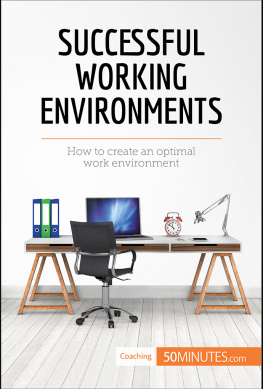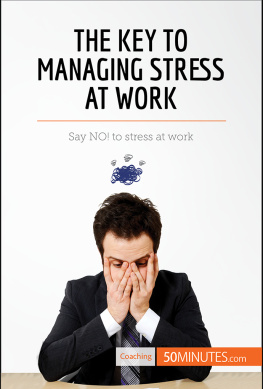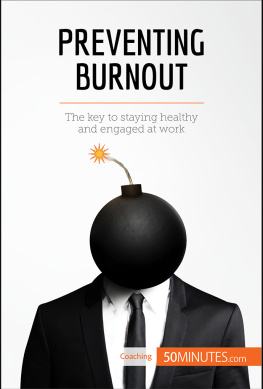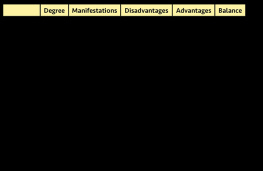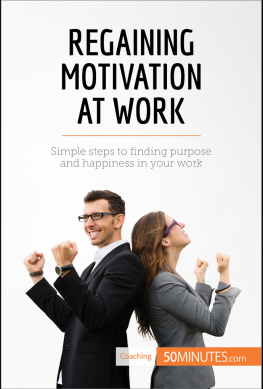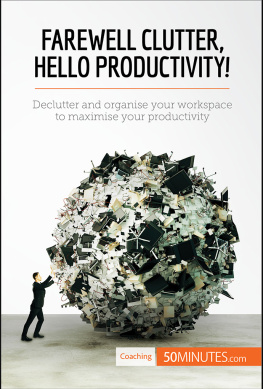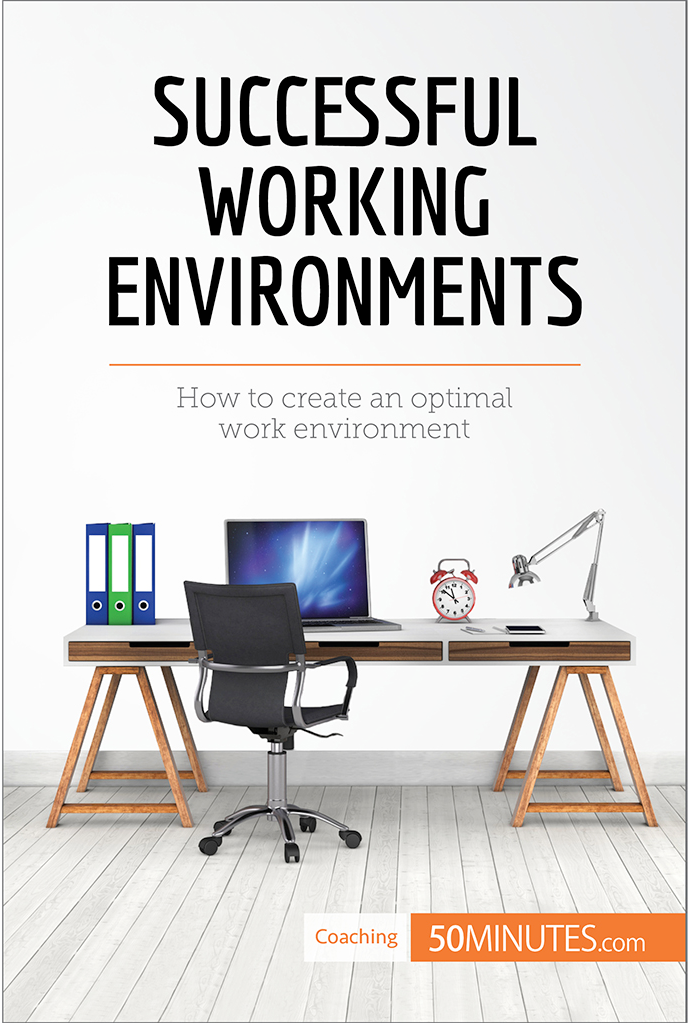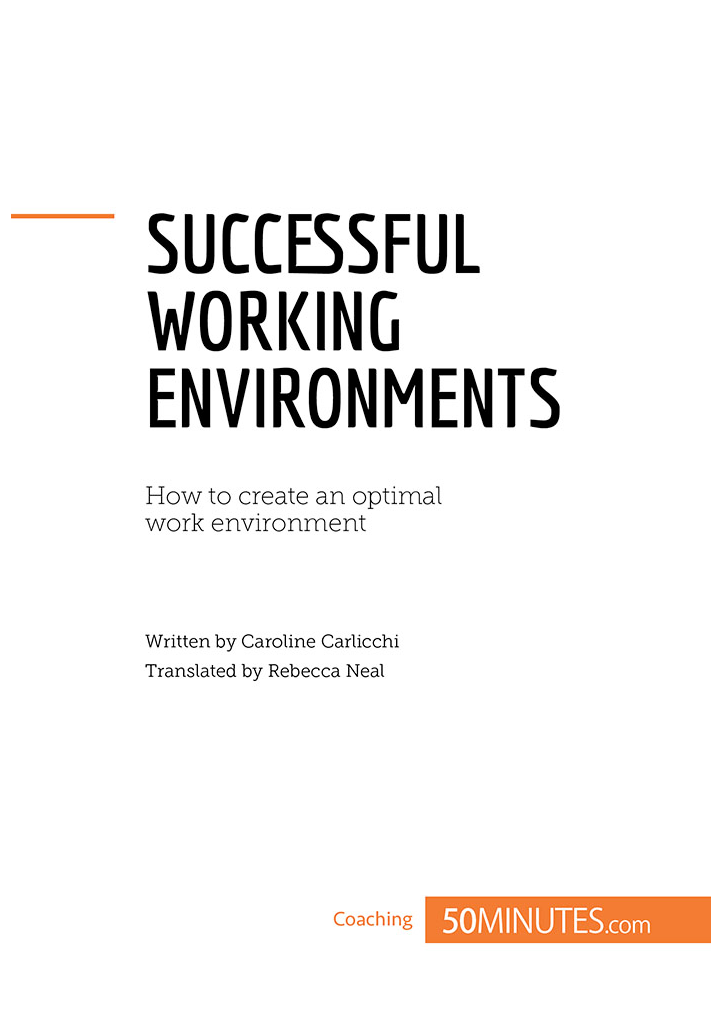Your working environment is key to your efficiency
Andrew works in the design department of a factory. His office is tucked away in a corner of an old hangar. His computer regularly crashes and the light, which is not bright enough for him to read plans, forces him to constantly go back and forth to the office of the planning department, which is more functional. Adele has been working there for 15 years, in an open plan office. She cannot wait to be promoted and get a private office, which will suit her work as this needs a lot of reflection and concentration. Meanwhile, Carl does not dare to receive his clients in the dusty premises of his company.
- Issue: how can I improve my working environment to boost my efficiency?
- Uses: increase your productivity, efficiency and personal and professional wellbeing.
- Professional context: office life, open plan offices, relationships with colleagues, stress, effectiveness and wellbeing at work.
- FAQs:
- What are the consequences of a positive working environment?
- What are the keys to psychological wellbeing in the office?
- How can I be at my best in the office?
- How can I reduce stress by working on my office environment?
- How can I use my professional environment to reinforce my self-esteem?
- What environment encourages collaboration?
- How should I balance my personal and professional life?
- How can I be more efficient by working on my office environment?
- How can I alter my environment to encourage change?
- How can the working environment reflect the values of the organisation?
In many organisations, the environment is seen first and foremost as a line on the budget to reduce. Nonetheless, some multinationals have clearly indicated their desire to improve the wellbeing of their employees by investing in ultramodern environments: in 1998 Renault opened its Technocentre in France, an ultramodern 410 000 m building designed to promote collaboration between teams. In 2007 Google, which is ranked the fourth best company to work for in the world, gave the 11 000 employees at its Mountain View headquarters in California the Googleplex, an extraordinary working environment which is perhaps even more relaxing than the employees own homes: pool tables, gardens, bicycles, chairs for discreet napping, a wide range of sporting activities, numerous restaurants and of course pleasant and modern offices. The respective cost of these headquarters was 5.5 billion francs (at the time) and hundreds of millions of dollars of investment. But why make this decision?
These companies, whose employee numbers are constantly increasing, understood that by building a good working environment, they were indirectly showing their employees that they were contributing to the effective working of the business, while increasing overall productivity. Through the quality of their infrastructure, the Technocentre and Googleplex tell employees that they are valued and important. Furthermore, these buildings were designed based on interviews with staff in order to better respond to their needs. The environment therefore responds as well as possible to the needs of the position and above all guarantees that employees are recognised, which is the main ingredient in motivation.
Indeed, recognition is a fundamental psychological need for all of us. When this need for recognition is satisfied, we feel reassured and are free to think, organise and take action to achieve our objectives. Conversely, when we feel that we are not being recognised, we experience stress and we may feel threatened and find ourselves at an impasse, unable to think, make decisions, collaborate and move forwards.
If an organisations working environment is unsuitable, there are still many possible initiatives that we can take on an individual level. This guide will show you how to put a more pleasant working environment in place, thereby reducing your stress levels, promoting collaboration with others and improving your productivity.
An effective working environment: the basics
What is a working environment?
Our working environment has a major influence on the way we feel in our day-to-day professional lives. It comprises everything that contributes to our involvement and motivation: relationships with colleagues, superiors and the different teams; the organisation and its culture; and of course the buildings, amenities and services offered to employees.
The working environment can be a source of stress in the same way as the work itself. This can take different forms: excessively noisy colleagues, a lack of light, too much dust, suffocating heat in summer and freezing cold in winter, dirty toilets, untidy office, a boss who micromanages you, etc. All this affects your performance and efficiency at work. A good working environment contributes to the wellbeing of employees, who then want to come to work and remain enthusiastic and motivated all day long. It guarantees the health and efficiency of workers, and consequently the performance of the organisation.
Conversely, an organisation which neglects the environment it offers its workers runs a serious risk of failing to meet contemporary challenges. Furthermore, a negative working environment has consequences for the health and career of employees. This is confirmed by a number of studies: a negative working environment contributes in particular to insomnia, anxiety and depression.
When we consider our working environment, there are several dimensions to focus on:
- the buildings, amenities and services offered;
- the organisation;
- ourselves and our needs;
- other people and their needs.
As such, the elements which make up the working environment are physical, organisational, psychological and social.
Did you know?
An effective working environment allows companies to:
- safeguard health and reduce the risk of injury;
- reduce staff turnover;
- minimise absenteeism;
- reduce medical costs;
- increase confidence in the organisation;
- strengthen the self-esteem of their employees;
- boost staff productivity and efficiency.
Mental health comes first!
James is permanently tired. He has noticed that all his time at work is spent processing files and dealing with the endless emails pouring into his inbox. He realises that he cannot take a step back to calmly and effectively reflect on his projects, and he makes a lot of effort to maintain his concentration. His tiredness is starting to cause physical problems, and he feels less open to listening to other people; in addition, he gets angry easily.
Although the negative effects of a poor diet or the consumption of harmful substances such as fatty acids, sugar, alcohol and tobacco on our bodies are increasingly pointed out in many publications, one essential element is ignored even today: our mental health. The effective working of the brain is too often neglected, but is at the root of our wellbeing.
The neuropsychiatrist Daniel Siegel (born in 1957), of the UCLA School of Medicine in Los Angeles, and David Rock, founder of the NeuroLeadership Institute, have identified that many people are overworking their brains and drawing heavily on their mental resources, which they think are infinite:

